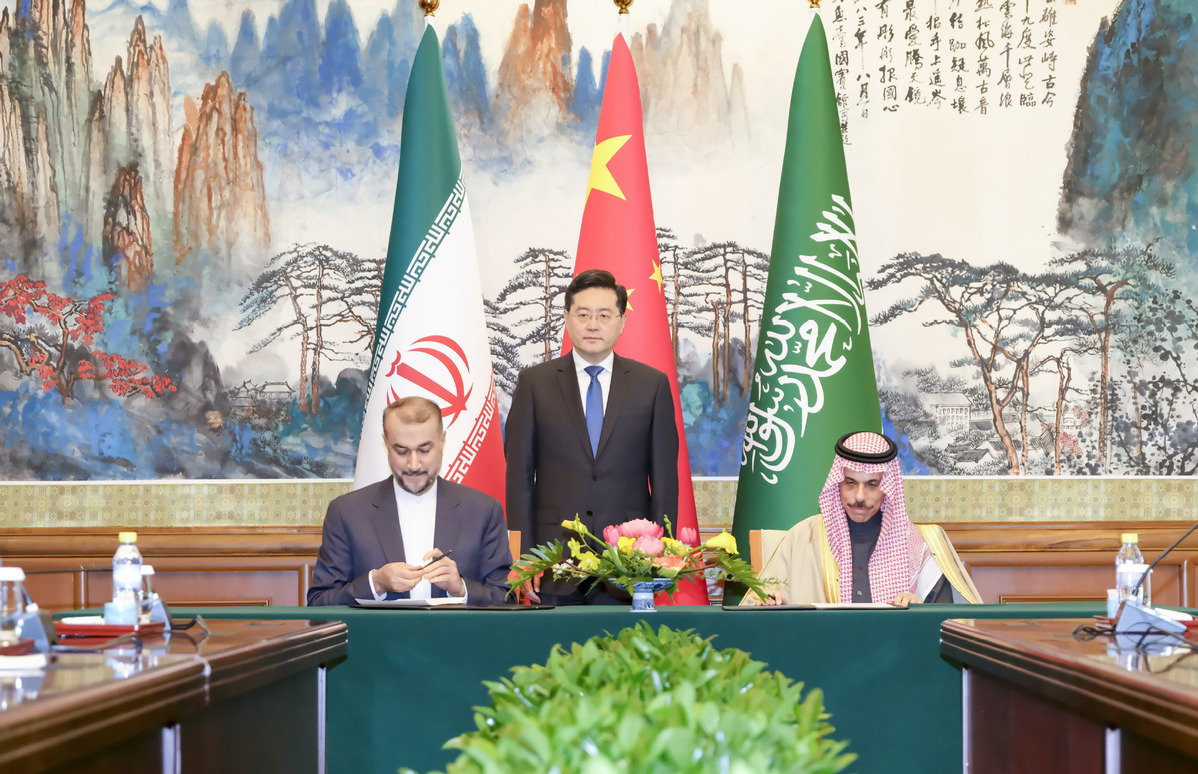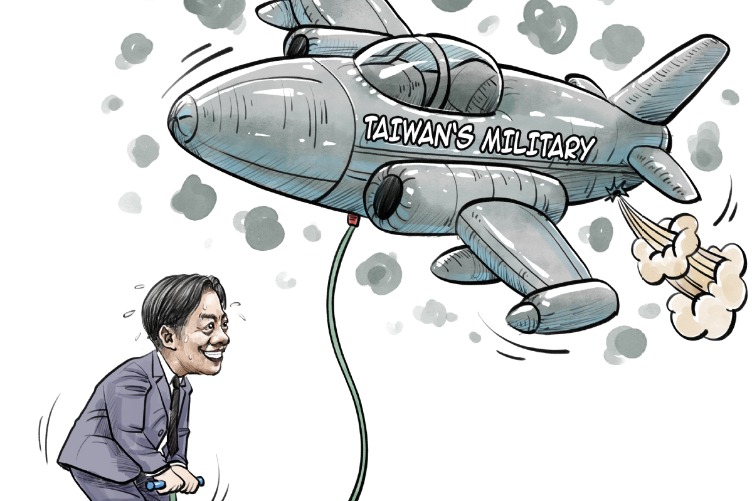GSI raises hopes by bearing fruit in Islamic world


The reconciliation between Iran and Saudi Arabia, mediated by China, reflects a change not only in the Middle East but also across the globe. And it is a vivid example to manifest China's Global Security Initiative. The disputes between the two influential states of the Islamic world because of "sectarianism" were the most important policy used by the Atlantic forces to keep the Middle East countries under their control.
That the rapprochement between Riyadh and Teheran happened on the anniversary of the Global Security Initiative shows that China is serious about strengthening global and regional security so countries can focus on development and build a better future. The Global Security Initiative is part of China's policy to help build a community with a shared future for mankind.
The Iran-Saudi Arabia disputes are an apt example of imperialism's classic "divide and rule" strategy. They not only allowed the transatlantic powers to control the energy resources of the West Asian countries but also paralyzed the Islamic world, the most organized power in the Global South.
A joint statement issued by the heads of the security departments of Iran and Saudi Arabia with China's senior diplomat Wang Yi in Beijing on March 10, 2023, ushered in a new era. The first result was a cease-fire in Yemen, which is embroiled in a devastating sectarian conflict that the world pretty much has watched in silence. The bloody offensive in Yemen instigated and supported by the United States, has been halted, and Saudi Arabia has re-established relations with Syria.
Saudi Arabia's decision to better safeguard its national interests, overriding the dictates of the US-led West, has led to a "tectonic shift" in international relations. The US strategy of isolating and destroying Iran has failed. Middle East countries are waking up, and their desire to become independent and unite is growing.
The reconciliation between these two West Asian powers, thanks to China's mediation, has more than geostrategic implications. The perception of China fabricated by the West in the Muslim world is radically changing, because China's approach to Islamic countries is unique and based on peace, respect and equality.
The Islamic world has found a friendly country that does not despise it, respects its values, does not interfere in its internal affairs, and does not impose its policy on it. China, led by Xi Jinping, is committed to helping build a more just world. China and the Islamic world seem prepared to build a world that puts the people first.
About 100 years ago, under the leadership of Sun Yat-sen, a very vocal discourse on "Pan-Asianism" or "Orientalism" became widespread, based on the argument that Asia was morally and spiritually superior to the destructive and materialistic West.
Having defeated Japanese imperialism and then US imperialism, China, under the leadership of Chairman Mao Zedong, supported the liberation struggle of the oppressed nations. And developing countries, including many Muslim countries, played a key role in restoring the lawful seat of the People's Republic of China (PRC) in the United Nations in 1971.
After Xi Jinping's election as general secretary of the Communist Party of China Central Committee in 2012, a new era began between China and the Islamic world. As a matter of fact, many of the countries that have joined the Belt and Road Initiative are Muslim-majority states.
In fact, on March 22 last year, then Chinese foreign minister Wang Yi was invited for the first time to the meeting of the Council of Foreign Ministers of the Organization of Islamic Cooperation (OIC). It was an important move on the part of the Islamic world, which has been suffering from US bullying, to make China a development partner. China's newly-proposed Global Civilization Initiative also further promotes dialogues between civilizations.
Just as Chinese diplomats explained, China's policy towards Islamic countries include mutual respect and mutual trust, mutual benefit, common security, mutual learning and common progress.
This historic dialogue and cooperation between China and the Islamic world is valuable. Of course, Turkiye will also receive an important share of this vital support.

The views don't necessarily reflect those of China Daily.

































